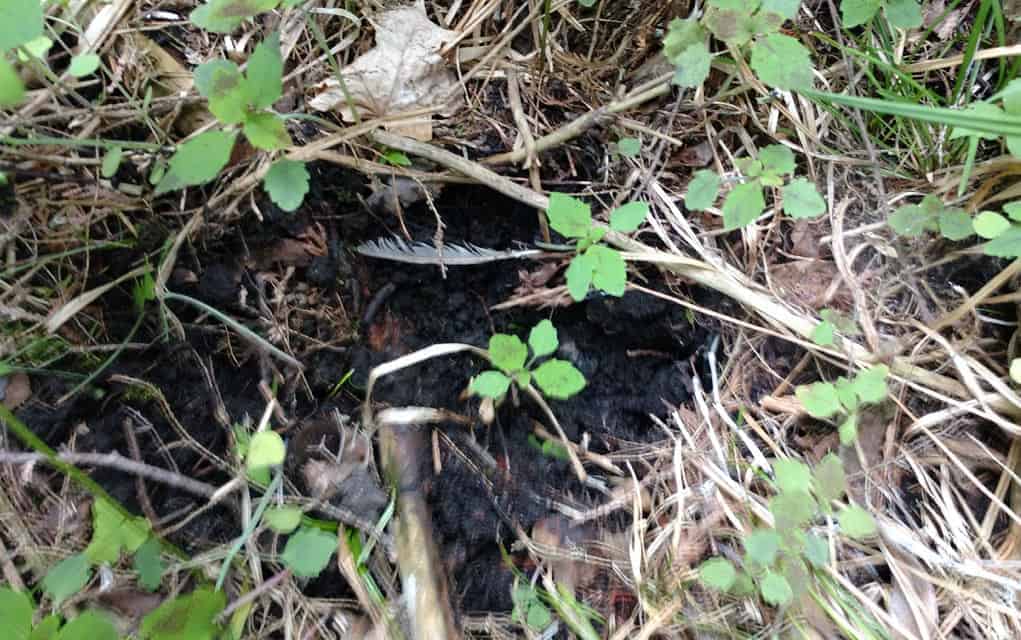Spring is over, and the black bears are out looking for food to fatten up for next winter.
A Stirton resident, Ken Kirk, saw a bear in Floradale just last week. He says it was an unusual sighting for the area. He hasn’t seen one in years.
“I saw it on the Floradale Road, just before the 8th Line. It was just coming out of a small bush. There is a bush lot right on the corner there just before 8th Line, there are about three or four houses there. It just came out of the bush and up into the ditch,” he said. “My son and I drove past: we saw it and it saw us. I looked at it, I looked at my son and said, ‘what the hell? It’s a bear.’”
It turns out he isn’t the only one who saw the bear, which he says might have been young, just a year or two old.
“I was talking to the guys at the Elmira Meat Market. I told them I saw the bear, and they ended up phoning me a couple of days later and said, ‘Ken, you aren’t crazy.’ So somebody else saw it too. It is coming closer to people, that’s for sure,” he said. “They are just trying to find something to eat.”
Brendan O’Farrell, who works as a technical specialist with the Ministry of Natural Resources’ Guelph office, says that bear sightings in the area aren’t common. Their office has only received five calls this year so far, and they were all up in the Alma, Clinton and Port Albert areas. He confirmed Kirk’s assessment that the bear may be young.
“Although black bear sightings within the Guelph district are rare, they do occur. Often they are young males that have recently left the natal family searching for a new territory and food sources,” he said in an email interview.
O’Farrell has a few tips for people who may come across a bear in the Elmira area. Generally, they are just looking for some food.
“Never feed or approach a black bear. Bears usually avoid humans. Generally, you won’t see a bear even if one is close by. Remember, in the natural environment you are a visitor in the bear’s home range, so do all you can to avoid encounters. Make noises as you move through wooded areas, especially in areas where background noise is high, such as near streams and waterfalls. Singing, whistling or talking will alert bears to your presence, giving them a chance to avoid you,” he said. “If the bear is not paying any attention to you, slowly and quietly back away while watching the bear to make sure it isn’t following you. Do not approach the bear. If the bear knows you are there, raise your arms to let the bear know you are a human. Make yourself look as big as possible. Speak in a firm but non-threatening voice while looking at the bear and backing away. If a bear approaches you, drop any food you may be carrying and continue backing up. If the bear continues to approach, stand your ground and stay calm, use a whistle or air horn, speak loudly, stand tall, wave your arms and throw objects. Do not run or climb a tree. Bears can run faster and climb better than you. If the bear makes contact, fight back.”
There are a few things that folks can do to make sure that bears steer clear of residential areas, as well.
“Put garbage in containers that have tight-fitting lids, and only put it out on garbage day, not the night before. Do not stockpile garbage. Take it to an approved waste disposal site regularly. Never leave garbage outside. Fill bird feeders only through the winter months. Never feed bears or try to approach them. Remove grease and food residue from barbecue grills, including the grease trap, after each use. Do not put meat, fish or sweet food in your composter. Pick all ripe fruit off trees, and remove vegetables and fallen fruit from the ground.”
If you see a bear being a nuisance, or putting public safety at risk, O’Farrell says to call the Ministry of Natural Resource’s BearWise line at 1-866-514-2327.









